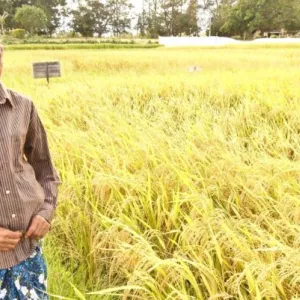Are rice systems sustainable in Sri Lanka? – A case of Deduru Oya reservoir irrigation scheme
Paddy cultivation is significant in Sri Lanka, as 15% of the country’s land is dedicated to paddy production. However, the country’s rice production systems face various challenges due to climate and other stresses. Understanding sustainability gaps in Sri Lankan rice production systems is crucial for achieving sustainable development goals. Fast-growing population, depletion of natural resources, and climate change are exerting

Are rice systems sustainable in Sri Lanka? – A case of Deduru Oya reservoir irrigation scheme
Paddy cultivation is significant in Sri Lanka, as 15% of the country’s land is dedicated to paddy production. However, the country’s rice production systems face various challenges due to climate and other stresses. Understanding sustainability gaps in Sri Lankan rice production systems is crucial for achieving sustainable development goals.
Fast-growing population, depletion of natural resources, and climate change are exerting immense pressure on food demand worldwide. In most Asian countries, including Sri Lanka, ensuring the sustainability of rice-based systems is an important aspect of addressing these challenges and achieving food security.
The rice production systems need to be profitable (economic sustainability), provide societal benefits (social sustainability) with a minimal negative impact on the environment (environmental sustainability). Globally, more attention has been paid to economic outcomes (e.g., grain yields) rather than a holistic approach encompassing multiple domains of sustainability.
Furthermore, a major limitation of most studies is their focus on plot- or farm-level analyses with relatively little attention to spatial heterogeneity, which is critical for scaling interventions
Paddy cultivation holds significant importance in Sri Lanka, as 15% of the country’s land is dedicated to paddy production. Sri Lanka’s paddy production has averaged 4.18 million metric tons of paddy over ten years (2013− 2022). However, the rice production systems in the country face various challenges due to climate and other stresses.

